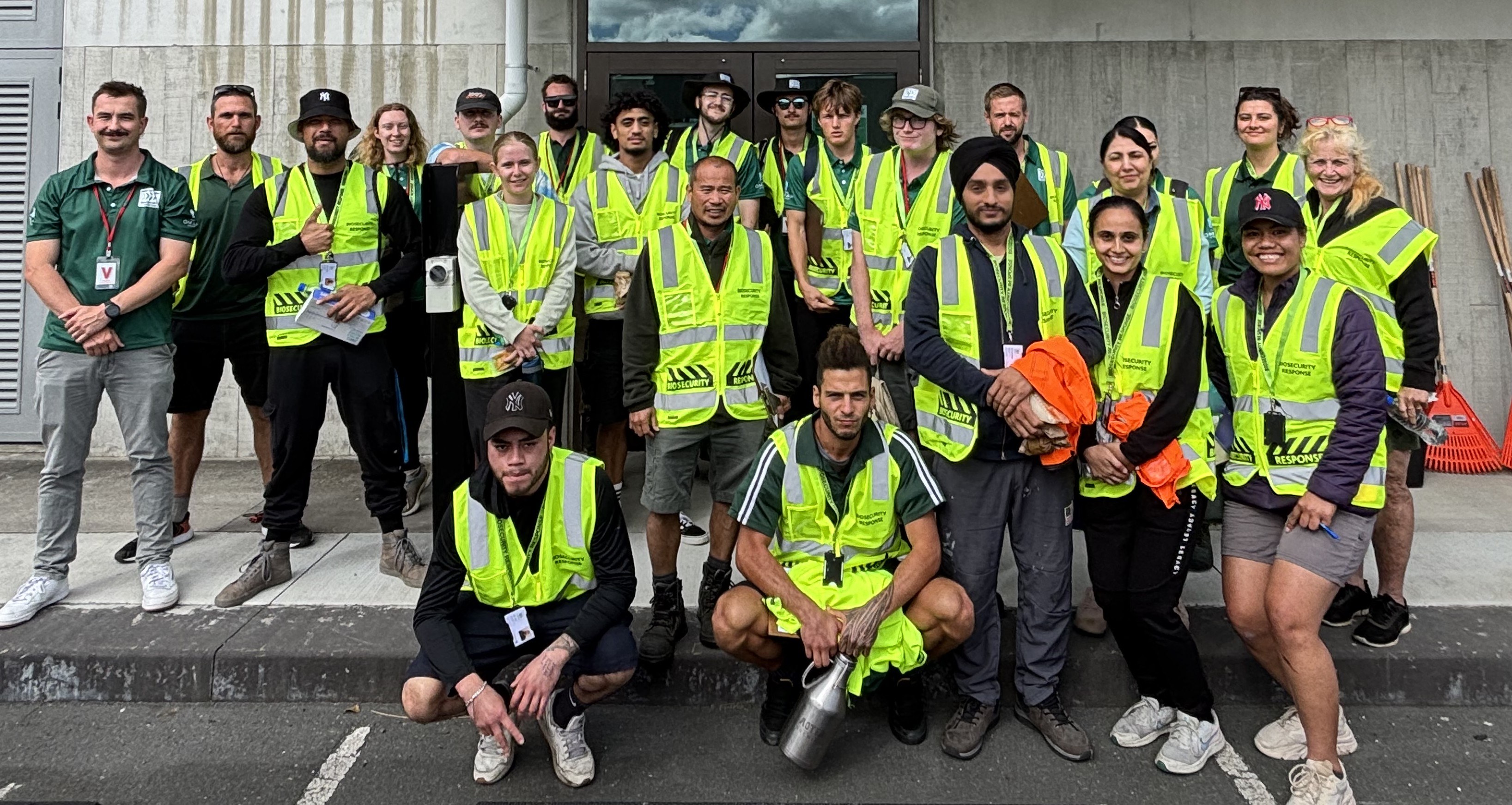Seen something unusual? MAKE A REPORT
Seen something unusual? MAKE A REPORT
The biosecurity response to the find of a single male Oriental fruit fly in a backyard surveillance trap in Papatoetoe continues to make good progress.
There are extra traps in place, stepped up checks, legal controls introduced, special bins delivered for fruit and vegetable waste disposal, and a mobile lab in place.
Signage, letter drops, community engagement and translation of materials has also been underway this week, letting those affected know how they can continue to support the response and safely dispose of fruit and vegetables within the two restriction zones.
KVH staff, alongside industry personnel from nearby Punchbowl and APAC, have been key members on-the-ground since these activities got underway and we thank everyone for their great efforts – especially at short notice, during the holiday period.

Image: Punchbowl, APAC, and New Zealand Biosecurity Services Limited staff in the field assisting with the Papatoetoe fruit fly response.
A response governance group continues to lead the investigation, and KVH is part of this group, alongside other horticulture industry groups. We will be taking a lead role in ensuring the most appropriate action is taken to minimise any impact on kiwifruit growers, and we will keep you updated as the investigation progresses.
The main points to note at this stage are:
Oriental fruit fly can affect over 300 hosts including kiwifruit, apples, citrus, and tomatoes. Adult flies lay eggs into fruit. The young stages (maggots) feed inside the fruit, causing it to rot and become unmarketable. It requires a big effort to keep fruit flies out of New Zealand and together we can continue to ensure we protect our businesses and orchards from the potential impacts posed.
Significant response updates will continue to be posted on the KVH website as they occur.
Useful resources
KVH investigates reports of unusual symptoms to identify and manage any biosecurity risks.